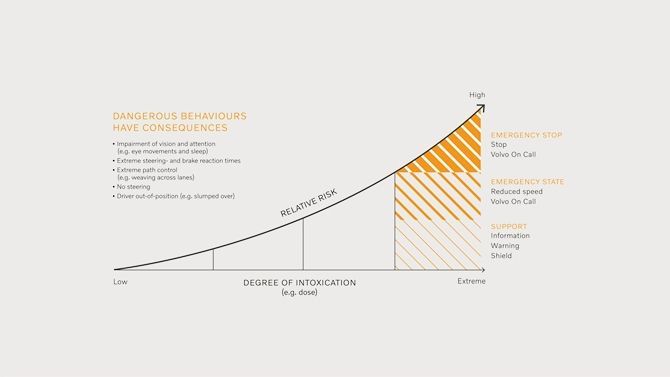Volvo Cars Will Be Able To Tell If You're Drunk Or Distracted
Berita KeretaRemember how a couple of years back, continental car companies introduced a feature that would analyze steering inputs to determine if a driver was potentially tired - usually indicated with a small coffee cup symbol that would pop up on the instrument cluster? Volvo's going a little further, as they plan to put cameras in their cars that can detect whether a driver is intoxicated or distracted.

This comes after a controversial statement that Volvo cars would be limited to 180 km/h in the future, but this statement is one that is far more acceptable to enthusiasts and the general community. Drunk driving accounts for 30% of all fatalities on the road in the United States alone, and the system would help to ascertain whether the driver is in the right state of mind to be piloting a vehicle.
Distracted driving also comes hand in hand with this, as drowsiness or distraction can also cause major road accidents. The actual mechanics of the system remain to be seen, but it could involve a number of things from lowering the speed limiter on the vehicle to engaging the Volvo on Call system for assistance. It would also better prime the onboard active safety systems to intervene if necessary.
The idea is that safety in the event of an accident is one thing, but preventing the accident entirely is a far more ideal option. You can expect these cameras to appear in Volvo models from early 2020 onwards, starting with the next generation SPA2 platform that will underpin their larger vehicles. But this system does raise the larger question of how much authority a car company has when it comes to policing their customers.
It may be socially acceptable in this scenario, but what if it opens the doors to much larger forms of policing? What if control over onboard systems is extended to the improvement of fuel economy and drivers are no longer allowed to drive as they please? It's fast becoming a stronger argument for entirely autonomous cars, because at the end of the day if you're not doing much of the driving yourself, there's hardly any point being behind the wheel.